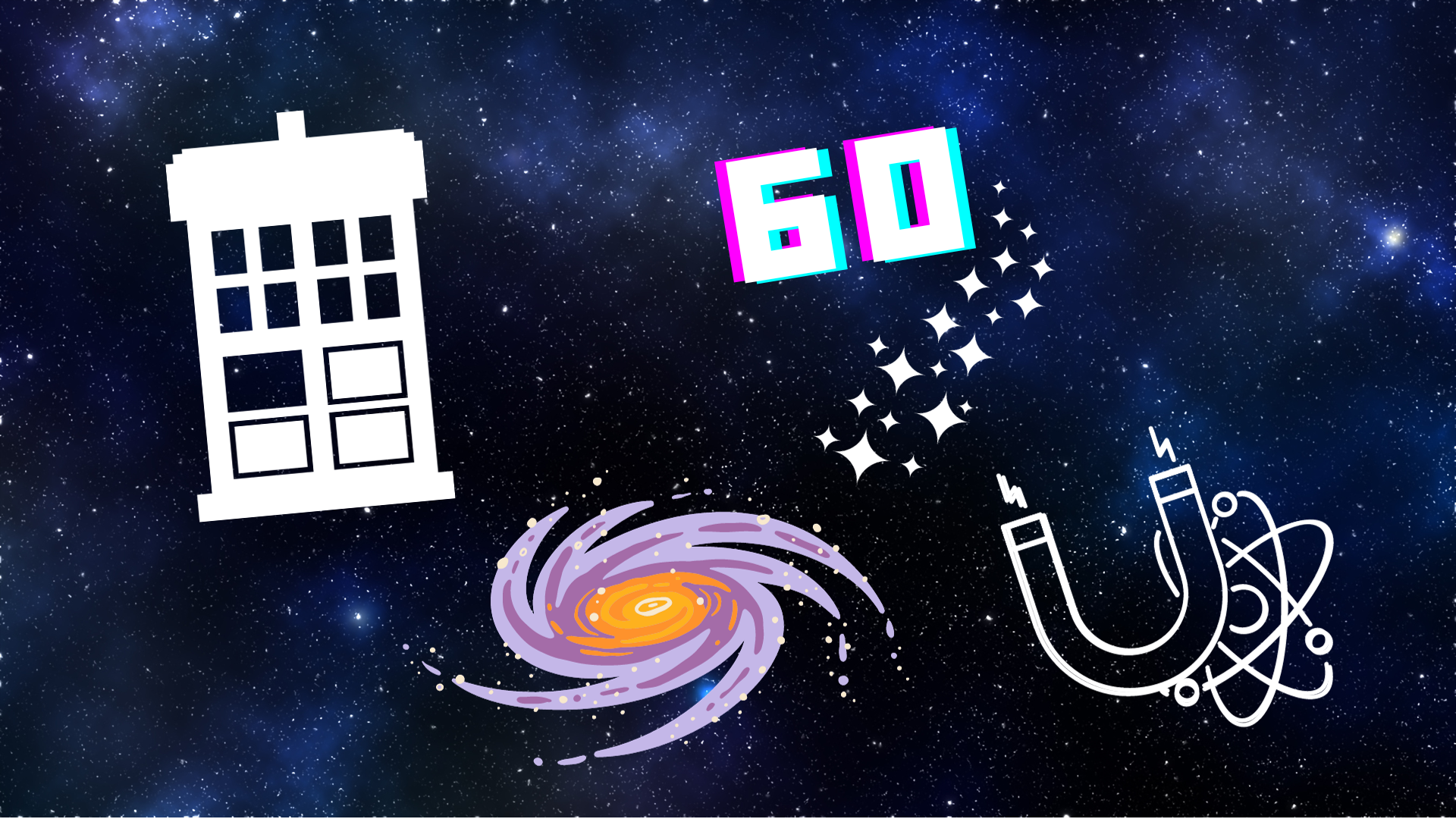by Catriona Roy
Today marks the 60th anniversary of the longest-running sci-fi TV series of all time and space. A day worth dressing up for in a fez and a long scarf, but there’s more to come as Whovians throughout the Universe eagerly await the first of three special episodes starring David Tennant and Catherine Tate which airs this Saturday.
Doctor Who inspires many a young person into taking up science, myself included. I interviewed University of Edinburgh Astrophysics graduate Dan Shinks, who is co-host of a Doctor Who podcast, The Shobocast.
Can you tell me about the podcast?
The Shobocast was a project created by five friends during lockdown, who decided that there quite frankly weren’t enough podcasts about Doctor Who and wanted to throw their collective hat in the ring. It was a chance for us to talk about the highs (and often lows) of our favourite show during a time when there was nothing else really going on. At the moment it’s on pause because our lives have started up again and it’s hard to find the time. We’re currently trying to figure out the future of the show and maybe a better name that isn’t as absurd a reference as the Shobogans.
(Since interviewing Dan, The Shobocast has come back together to discuss this year’s specials – you can find it on Youtube.)
Which came first for you, your interest in Doctor Who or your interest in physics?
My earliest experience with Doctor Who was the first episode of the revival, all the way back in 2005 with Christopher Eccleston when I was 5. Like many people my age, that’s when the obsession started, long before I had any idea what a lepton or a white dwarf was. I think it’s fair to say that it was one of the many reasons I ended up going into physics.
Do you see sci-fi differently having studied physics?
I think physics is an excellent starting point for sci-fi, but I find if you worry too much about being scientifically accurate, you’re going to end up with something boring. The relationship between the two works best when you’ve got a physicist on one hand discovering these great new ideas and writers on the other taking those ideas, completely misunderstanding them, but writing a brilliant 45 minutes episode.
CR: Very true. There’s a fun lecture/documentary called The Science of Doctor Who (which is on iPlayer), in which Brian Cox meets the Doctor and also talks about the real physics behind things like time travel, black holes and exoplanets. I find that I can study physics seriously but also turn a little bit of my logical brain off to imagine “what if…”
What’s your favourite episode in terms of how well it explores physics?
One of Peter Capaldi’s final stories (World Enough and Time/The Doctor Falls) took place on a 400 mile long, tube shaped spaceship, accelerating away from a black hole. Due to gravitational time dilation, the bottom of the ship experiences time much quicker that the top, such that whole civilizations have popped up, populated by descendants of the crew who were sent to check on the engines just a few days earlier. I love the way this story runs with these concepts and uses them to ask questions like how to defeat an enemy who’s had much more time to prepare that you.
I remember watching some documentary once as a child which said that the energy required to create a wormhole in space-time was something on the scale of a collapsing star. When I looked it up later, I was very excited to learn that the TARDIS was powered by something called The Eye of Harmony: a collapsing star suspended in a “permanent state of decay”. Knowing they were thinking about that stuff, even back in 1973, is very cool.
Little moments of logic, like that, sprinkled throughout otherwise meaningless nonsense (a very scientific term) are great ways to make these stories and worlds more believable.
CR: I love World Enough and Time as well! I also like a 4th Doctor story from 1980, The Leisure Hive, which features “tachyonics”, a new science based on the faster-than-light particles that are seen more in hard sci-fi.
To finish, any general thoughts on DW?
Doctor Who is a very unique show. It’s very hopeful. To paraphrase Steven Moffat, the Doctor is a hero not with a gun, but a screwdriver. Their superpower is an extra heart. We’ll always need the Doctor.



